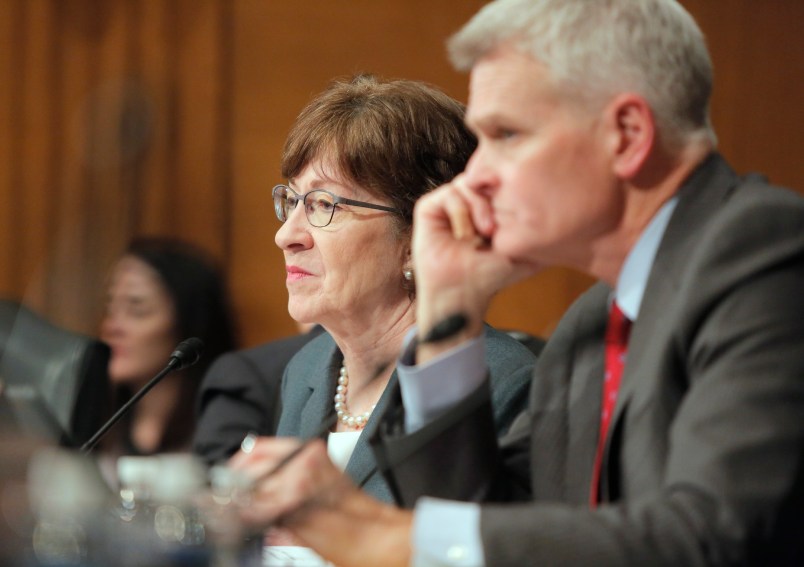Senate Republicans killed the bipartisan January 6 commission bill Friday, using the filibuster to block the legislation from advancing.
Only six Republicans — Sens. Susan Collins (R-ME), Mitt Romney (R-UT), Ben Sasse (R-NE), Lisa Murkowski (R-AK), Rob Portman (R-OH) and Bill Cassidy (R-LA) — joined with Democrats to try to overcome the 60-vote threshold needed to break the filibuster and send the bill to the floor for debate.
Some senators had already flown home, loath to lose the precious holiday recess to interminable floor delays on votes that seemed inevitable.
While the commission bill enjoyed some early Republican support, and scrounged up 35 GOP votes in the House despite Republican leadership in both chambers coming out against it, Senate Minority Leader Mitch McConnell (R-KY) reportedly starting whipping his members against the bill extra hard this week.
Some members are already looking to the future.
“The most likely outcome, sadly, is probably the Democratic leaders will appoint a select committee,” Collins told Politico. “We’ll have a partisan investigation. It won’t have credibility with people like me, but the press will cover it because that’s what’s going on.”
Cassidy cited the specter of a partisan committee as his rationale for wanting to advance the bipartisan commission bill, explained in a printed statement handed out to reporters as he voted.
“The investigation will happen with or without Republicans,” Cassidy wrote. “To ensure the investigations are fair, impartial, and focused on the facts, Republicans need to be involved.”
House Speaker Nancy Pelosi (D-CA) could pass the bill to set up such a committee, which would be populated by current members, through the House alone. She’d have some flexibility on the composition and figuring out the parameters of commissioners’ subpoena power.
She avoided weighing in last week about her openness to the select committee should the bipartisan commission fail.
“Everybody knows what my options are,” she said. “They are no secret. But I — the preference — not only preference, overwhelming preference is for bipartisanship.”
President Joe Biden could also go it alone, and establish a commission through executive order. Jordan Tama, an associate professor at American University’s School of International Service who has written a book on commissions after crises, told TPM that such a path could be separate from Congress, and funded by discretionary executive branch funds. Based on the behavior of congressional Republicans, he said, it seems to be the best way forward.
“Given the way that Republican congressional leaders have stonewalled the creation of a commission, they would do everything in their power to undermine the legitimacy of a select committee,” he said. “Biden has the power to establish a commission that would have more bipartisan credibility. He could appoint to the commission five Democrats and five Republicans who are nationally respected and would be committed to taking the commission’s work seriously and following facts wherever they lead.”
There is a hitch, though: while the select committee would have subpoena power, a presidential one would not absent a law from Congress, Tama said.
“But a presidential commission can still have quite a lot of authority,” he added. “In particular, the president can order all executive branch agencies to comply with requests from the commission for documents or other information.”
While both of those alternatives are almost certain to attract cries of partisanship from Republicans, the bipartisan nature of the independent commission was not ultimately enough to deter those same attacks from GOP leadership. Despite the involvement of Rep. John Katko (R-NY) as one of the bill’s authors, both McConnell and House Minority Leader Kevin McCarthy (R-CA) have rebranded the legislation as a product of Democratic leadership, presumably to give a neater narrative as to why they and their members oppose it.
“As my colleagues know, I have been clear and unflinching in my own statements about January 6, but as I have also repeated, there is no new fact about that day we need the Democrats’ extraneous commission to uncover,” McConnell said on the floor Thursday.



